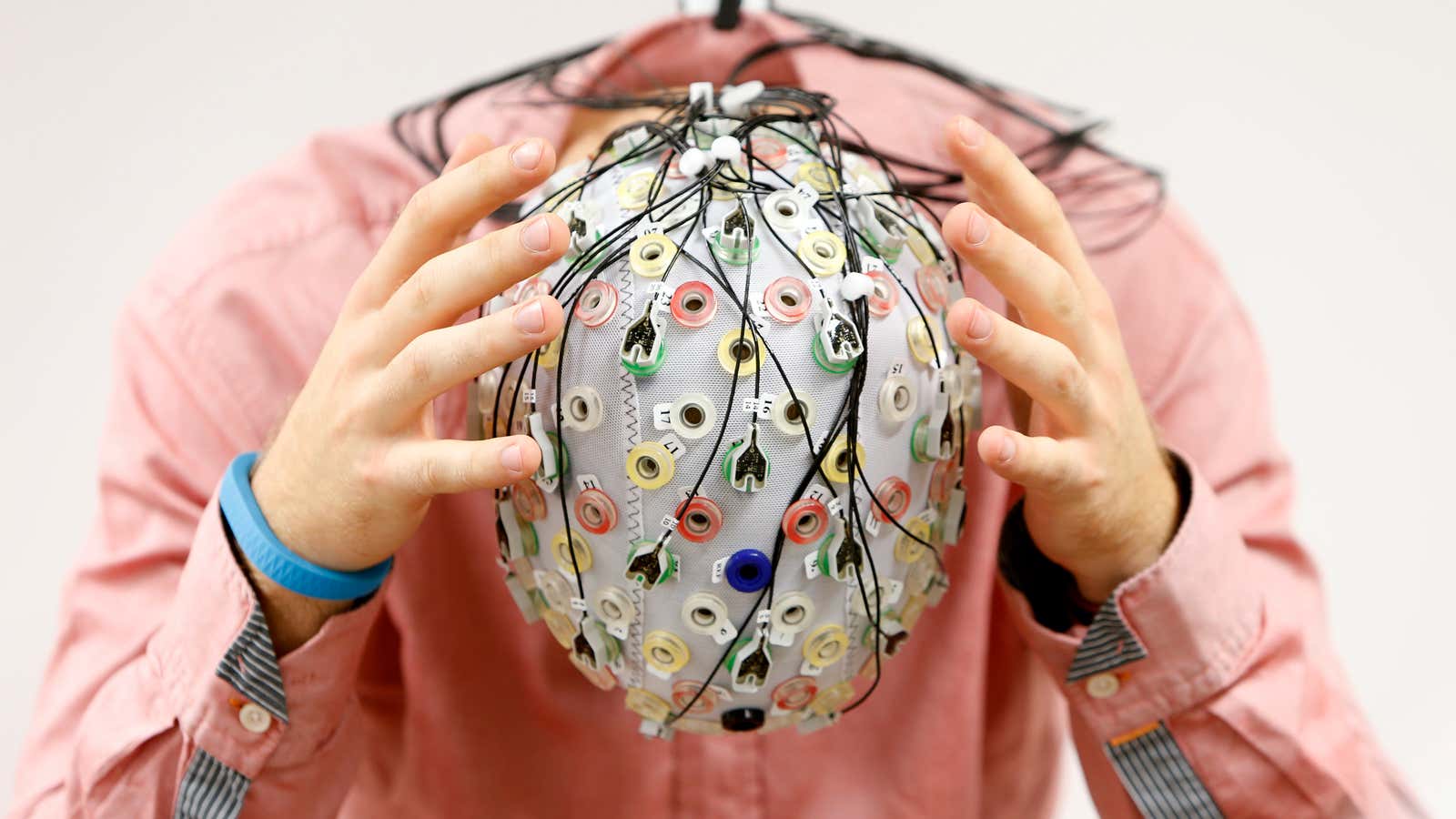There are several major scientific theories that attempt to explain how exactly how our brains have consciousness. But all of them, argues Lisa Miracchi, an assistant professor of philosophy at the University of Pennsylvania, have the effect of reducing consciousness to neural processes.
While some of these neural processes might well be necessary to develop consciousness, none of them are the complete story. “If we want to understand consciousness, we should understand it together with how we seem to have a perspective on the world,” Miracchi says.
Miracchi believes that consciousness itself cannot be disentangled from what philosophers call “intentionality” (which means, very roughly, conscious awareness of our environment). In other words, we cannot understand consciousness without understanding how our mental experiences represent other, external things.
The way neuroscientists and psychologists tend to fit the world into their explanations of consciousness is “by thinking of neurons and neural processes as carrying and transferring information” about the world, Miracchi says. “I think that’s important … but you won’t understand consciousness just by looking at neural facts.”
Philosophy and the humanities also have a role to play in uncovering the nature of consciousness, says Miracchi, who led a tutorial on “What Might a Scientific Explanation of Consciousness Be?” at the annual meeting of the Association for the Scientific Study of Consciousness, held this year in Buenos Aires. She thinks the arts can “tell us more about the nature of those things than anything else.”
Consciousness is a subjective, first-person experience, and art can “help us look at the nature of our experience and turn our gaze inwards.” As an example, Miracchi recalls sitting awed, at the age of five, in front of giant Rothko paintings at a San Francisco art museum. The mesmerizing artworks are a reminder of “what a miraculous thing it is to have a phenomenal experience.”
Without incorporating philosophy into our understanding of consciousness, we risk merging two important, separate questions together as one, says Miracchi. The first question is what difference consciousness makes to how we act in the world. Conscious beings act differently from non-conscious beings, and the precise role consciousness plays is still hotly debated. The second question: How is it that we are conscious? Both are compelling questions, but Miracchi believes that many neuroscientific views of consciousness run these two topics together.
“They try to give a distinctive causal role for consciousness in purely neural or computational terms, and so to answer the ‘in virtue of what’ question in the same breath,” she says.
There can be a tendency for philosophers and scientists to talk past each other while addressing the same question. But Miracchi says that, though scientists may claim to only care about observables, many let their guard down after a while and admit they’re interested in the broader question of what transforms brain tissue into beings. After all, Miracchi says, “these are some of the deepest human questions that there are.”
